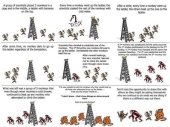




Life is too short, plant a tree for those that follow.




 2
2




Life is too short, plant a tree for those that follow.
 1
1








Life is too short, plant a tree for those that follow.




Moderator, Treatment Free Beekeepers group on Facebook.
https://www.facebook.com/groups/treatmentfreebeekeepers/





 1
1




It's never too late to start! I retired to homestead on the slopes of Mauna Loa, an active volcano. I relate snippets of my endeavor on my blog : www.kaufarmer.blogspot.com




Life is too short, plant a tree for those that follow.




Distribution - This fly occurs throughout most of the Western Hemisphere and the Australian
region from Samoa to Hawaii. It is likely that you have these in your area or worm farm but haven't
noticed them.
Moderator, Treatment Free Beekeepers group on Facebook.
https://www.facebook.com/groups/treatmentfreebeekeepers/









Life is too short, plant a tree for those that follow.




Life is too short, plant a tree for those that follow.














It's never too late to start! I retired to homestead on the slopes of Mauna Loa, an active volcano. I relate snippets of my endeavor on my blog : www.kaufarmer.blogspot.com
 1
1




Life is too short, plant a tree for those that follow.








Life is too short, plant a tree for those that follow.
 1
1








Life is too short, plant a tree for those that follow.
 3
3








Life is too short, plant a tree for those that follow.




Life is too short, plant a tree for those that follow.




They maybe...but rats are great eating especially with ginger and sesame sauce, or honey and rosemary glaze. Cuba's banana rats are as big as a small cat (loved eating them with just a little salt, and garlic.)I have always thought of pigeons as flying rats.
Possible...just like many other worries in life...just not high on the list of concerns. Humans are spending way to much time "worrying" about everything...instead of just thinking positively about things. We are now learning that what you "think" about your food is as (or more) important than what it actually is...the power of the "placebo effect."My starting point was about the risks of disease transfer.
DE??? This isn't a pesticide or antibiotic is it? Please don't use those if at all possible...it is not part of the Permaculture-Natural way of farming...DE in feed is my way of dealing with parasites, and it seems to be effective.
And it is wonderful stuff!!! Great to eat for all, and a resource that I just can not imagine folks passing by...which they so often do. Now that I have taught folks about that you see much less on the road wherever I live in just a few months or years...folks start grabbing them up... Flesh in the compost (when its to far gone for human food or not of a species I enjoy eating) is a great thing. I even will have a "caged" section to keep others out. You can also add a nice think layer to a mound garden as well (what folks are now calling "hugelkultur" funny how Europeans reinvent stuff?) as my ancestors have for millenia....road kill is plentiful...












Moderator, Treatment Free Beekeepers group on Facebook.
https://www.facebook.com/groups/treatmentfreebeekeepers/









Life is too short, plant a tree for those that follow.




 1
1




Moderator, Treatment Free Beekeepers group on Facebook.
https://www.facebook.com/groups/treatmentfreebeekeepers/





























Jay C. White Cloud wrote:Hey Mark...Great post thread and great questions!!
Would I feed pigeons from New York City to my chickens (in my case Ravens and hawks) no, not if I could avoid it...
j




Lynn Garcia wrote:
Jay C. White Cloud wrote:Hey Mark...Great post thread and great questions!!
Would I feed pigeons from New York City to my chickens (in my case Ravens and hawks) no, not if I could avoid it...
j
If you were to look closely at those New York City pigeons you would notice that 90% of them have leg bands. Most of NYC's pigeon "problem" is not wild birds. There are simply so very many pigeon keepers on the buildings. Most of those birds are probably considerably healthier than "country" pigeons. NYC is not even close to the only city in the east that is like this.
Pigeons like the any other "pest" species are a problem only when humans make them a problem. For the 10,000 years before the present pest rating they were in fact a very important farm animal. They were the second animal to be domesticated after the dog. It is sad to me that so many people have drank the Pest Control Coollaid and miss out on a really amazing animal to raise.




chad duncan wrote:[
I think his point was that local birds would have local parasites and would have developed natural ways of dealing with it, suddenly adding a bird (food) from a different region would add new parasites that the local birds physiology isn't prepared to deal with. I don't think he was suggesting that new York city is specifically disease ridden. At least not more than any other place.

| I agree. Here's the link: http://stoves2.com |



